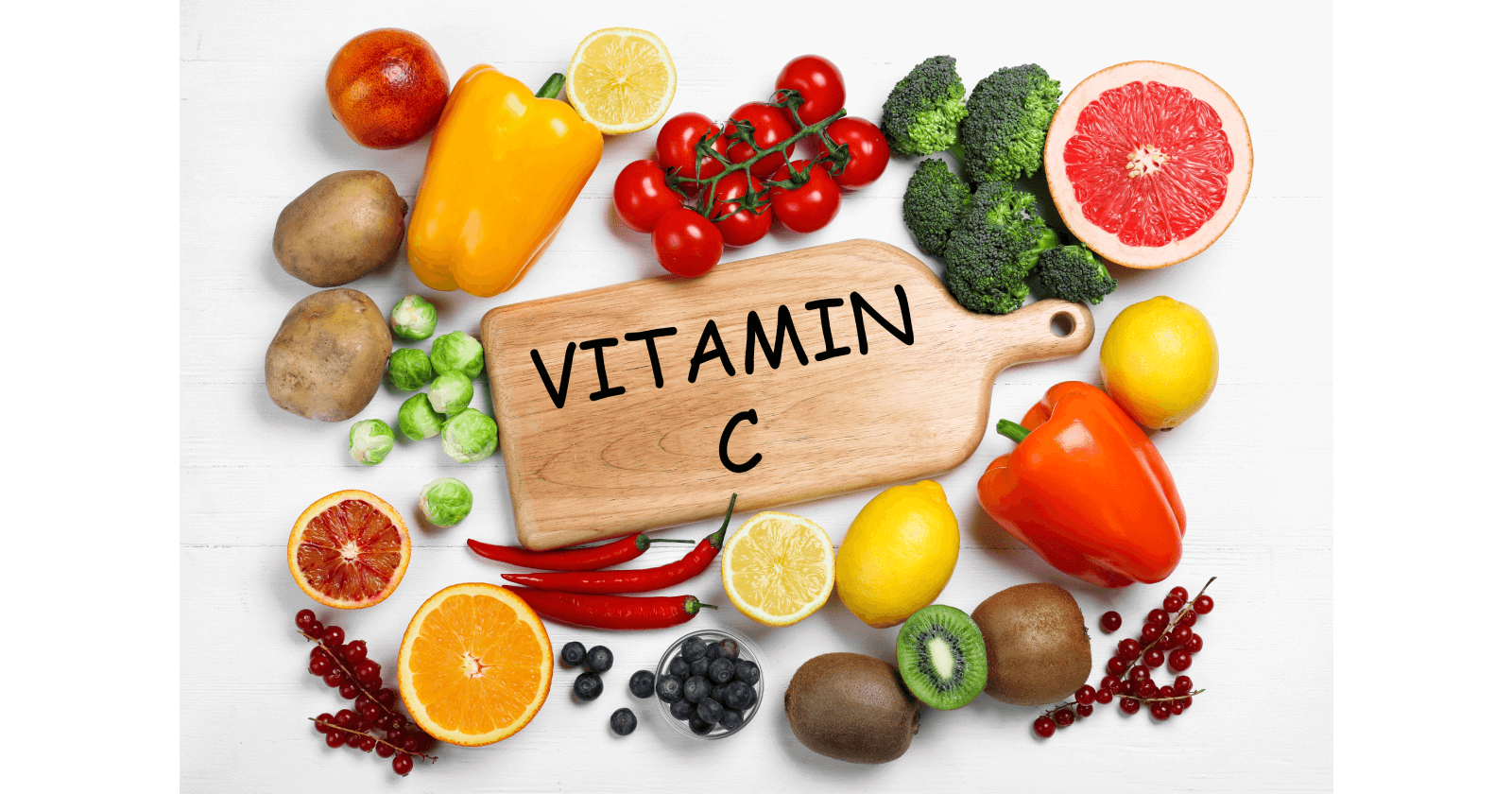Fruits are nature’s sweet, juicy treasures, packed with an impressive array of vitamins, minerals, fiber, and antioxidants. They’re the wholesome heroes of our daily diets, but one superpower often shines brighter than the rest – the power of Vitamin C.
Vitamin C, scientifically known as ascorbic acid, is an essential nutrient celebrated for its potent antioxidant properties and crucial role in maintaining our overall health. This water-soluble vitamin, found abundantly in many fruits, is an active health booster, integral to everything from skin health to immune function.

Citrus fruits—zesty oranges, tangy lemons, succulent grapefruits, and exotic limes—are often the first to consider vitamin C. These sunshine-hued delights are indeed bursting with this vital nutrient, making them a go-to source for many.
However, the realm of vitamin C-rich fruits extends beyond the citrus family. Venture into the tropics with fruits like guava, kiwi, papaya, and pineapple, all brimming with vitamin C goodness. Or journey into the world of berries, where strawberries, raspberries, and blackcurrants are not only flavor powerhouses but also potent sources of this essential vitamin.
Fruits With Low Vitamin C
Avocado, pear, apple, peaches, watermelon, and banana are fruits with low Vitamin C content. Pears have only 4mg of vitamin C per 100 grams, some apples have only 0.5 mg, and delicious bananas have only 8.7 mg of vitamin C per 100 grams.
Common Fruits with the lowest vitamin C are:
- Apples: 0.5 mg (without skin)
- Coconuts: 2.4 mg
- Pears: 4 mg
- Peaches: 6 mg
- Persimmons: 7 mg
- Bananas: 8.7 mg
- Watermelons: 8.1 mg
- Avocado: 10 mg
- Apricots: 10 mg
Vitamin C Content in Common Fruits (per 100g) Table:
| Fruit | Vitamin C Content (mg per 100g) |
|---|---|
| Guava | 228.3 mg |
| Kiwi | 92.7 mg |
| Strawberries | 58.8 mg |
| Oranges | 53.2 mg |
| Papaya | 60.9 mg |
| Pineapple | 47.8 mg |
| Mango | 36.4 mg |
| Raspberries | 26.2 mg |
| Blueberries | 9.7 mg |
| Apple (with skin) | 0.5 up to 4.6 mg |
| Banana | 8.7 mg |
| Pear | 4.3 mg |
Avocado is a fruit known for its creamy texture and healthy fats. However, vitamin C content is relatively low, with approximately 10 mg of vitamin C per 100 grams. Similarly, pears, which are refreshing and nutritious, contain about 4 mg of vitamin C per 100 grams.
While widely consumed and rich in other nutrients, apples have a relatively low vitamin C content of around 0.5 mg per 100 grams. Bananas, a famous fruit packed with potassium and fiber, offer only about 8.7 mg of vitamin C per 100 grams. While these fruits may not be considered significant sources of vitamin C, they still contribute to overall nutrition and can be enjoyed as part of a balanced diet.
Why do some fruits have low vitamin C?
There are several reasons why some fruits have low vitamin C content:
- Natural variation: Different fruits naturally contain varying amounts of vitamin C due to their genetic makeup and inherent characteristics. Some fruits have evolved with lower levels of vitamin C compared to others.
- Fruit maturity and ripeness: Fruits’ vitamin C content can change as they mature and ripen. In some cases, as fruits ripen, their vitamin C content may decrease. Therefore, consuming fruits when they are fully ripe may result in lower vitamin C levels.
- Processing and storage: Vitamin C is a relatively unstable nutrient sensitive to heat, light, and air exposure. Processing methods such as cooking, canning, or prolonged storage can lead to fruit vitamin C loss.
- Environmental factors: Growing conditions, such as soil quality, climate, and sunlight exposure, can influence the vitamin C content of fruits. Fruits grown in specific environments may naturally have lower levels of vitamin C.
It’s important to note that even fruits with lower levels of vitamin C still offer other valuable nutrients, such as fiber, antioxidants, and minerals. Therefore, incorporating a variety of fruits, both high and low in vitamin C, can contribute to a well-rounded and nutritious diet.
- How Many Tablespoons is One Clove of Garlic? - June 26, 2024
- How to Measure 3/4 Cup When You Don’t Have the Right Measuring Cup? - June 6, 2024
- How Much Does Cooked Pasta Weight Compare To Dry? - April 30, 2024
